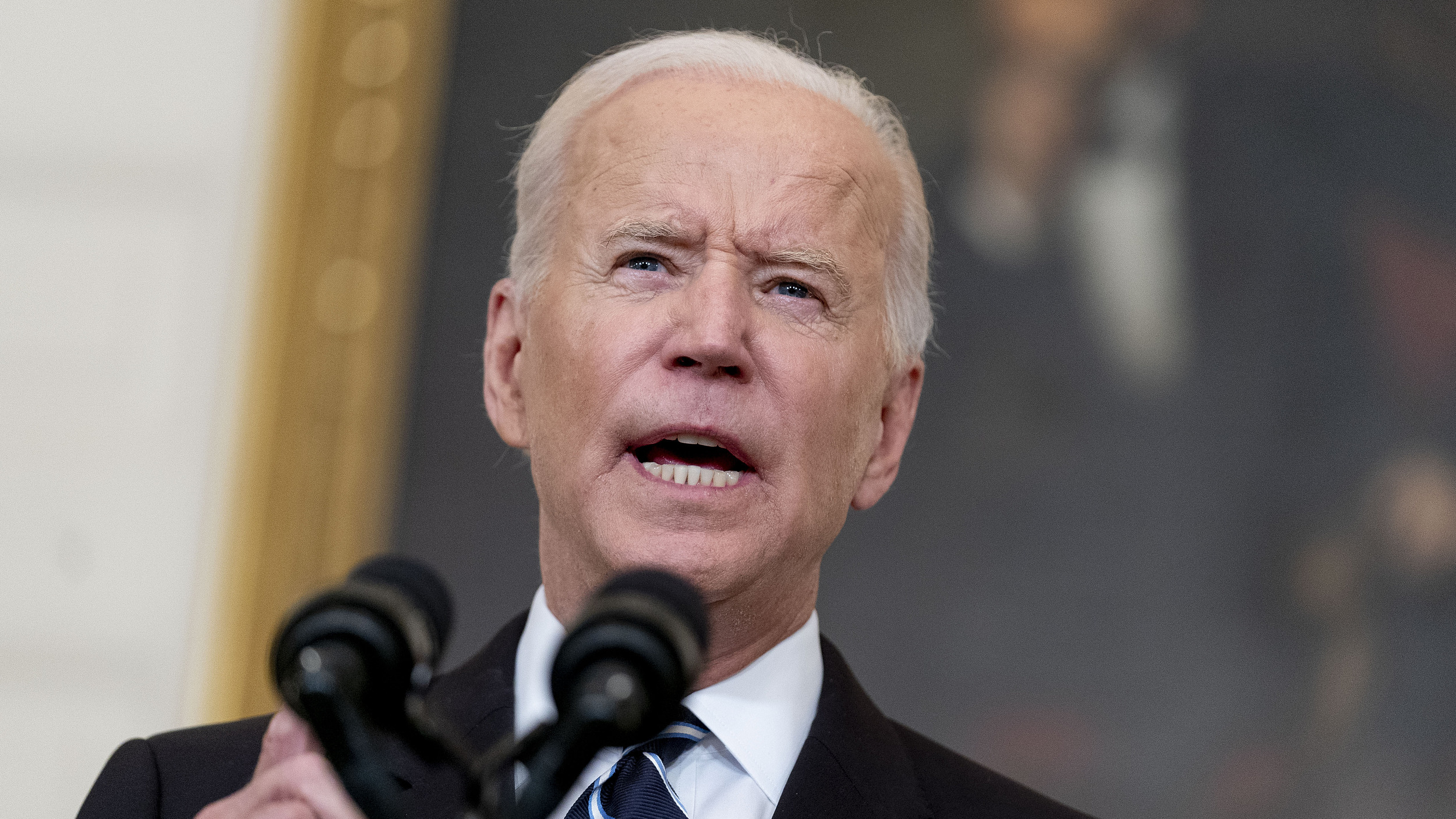
U.S. President Joe Biden. /CFP
U.S. President Joe Biden. /CFP
Editor's note: Behzad Abdollahpour is a freelance writer and researcher from Iran. He got his MA in North American Studies from the Faculty of World Studies, University of Tehran. Currently, he is studying China Studies at Renmin University of China. The article reflects the author's opinions and not necessarily the views of CGTN.
It has been over a year that Joe Biden assumed power in the White House. However, up until now, his stance towards China's Taiwan region has not been clear. Although there has been heated debates among political pundits regarding his Taiwan policy, it seems that he will not abandon the strategic ambiguity, which has been the cornerstone of the U.S. Taiwan policy.
In fact, one of the common elements of U.S. Taiwan policy under the different U.S. administrations since the normalization of China-U.S. relations has been their commitment to the three Joint Communiques of 1972, 1979 and 1982, Six Assurances, and Taiwan Relations Act, which are also considered the foundations of strategic ambiguity.
Generally speaking, since the proposal of these documents, all the U.S. administrations have deliberately maintained some degree of ambiguity on the Taiwan question. In other words, the ambiguous language of this strategy enables the U.S. to maintain the status quo by assuring Beijing that Washington would not recognize Taiwan as a de jure independent country and at the same time warning China that the U.S. would not stand using force against the Taiwan island.
In sum, the main components of this strategy are based on three considerations.
Firstly, the U.S. is committed to the one-China principle, which provides U.S. authorities with greater leeway and spaces to maintain and elevate Washington's relations with Beijing. As a veteran politician who understands the sensitivity of the Taiwan question in Sino-U.S. relations, Biden is expected to approach the island cautiously. Therefore, on November 16, 2021, in a virtual meeting with President Xi Jinping, Biden emphasized that the U.S. will maintain its commitment to the one-China principle and that Washington "opposes unilateral efforts to change the status quo or undermine peace and stability across the Taiwan Straits." Biden's rhetoric is worth pondering. It seems that his administration has realized that it should not abandon Washington's enduring posture towards Taiwan, which in a nutshell is strategic ambiguity.

Seven F-16 fighter jets taxi on a runway at an airbase in Hualien, Taiwan region. /Reuters
Seven F-16 fighter jets taxi on a runway at an airbase in Hualien, Taiwan region. /Reuters
However, the U.S. may simultaneously support the Taiwan region in political and military spheres. Similar to the administration of former President Donald Trump, the Biden administration indicated its willingness to highlight close and cordial ties with China's Taiwan region. The unprecedented invitation of Taiwan's representative to attend Biden's inaugural ceremony was the prime example of this.
Lastly, the U.S. Taiwan policy is also much dependent on domestic and international factors. Domestically, the Taiwan question has been used by U.S. presidents and presidential candidates to gain votes and enhance voter approval ratings. On the international stage, the Taiwan card has been used to get more leverage with China.
Another feature of the U.S. Taiwan policy is the Congress' determination to introduce several Taiwan-related bills, including the Taiwan Travel Act of 2018, the Asia Reassurance Initiative Act of 2018, the TAIPEI Act of 2019, and Taiwan Assurance Act of 2020. All of these bills contain pro-Taiwan provisions in strategic, defense, economic and technological areas as well as measures to contain China in the aforementioned arenas. Although most of the pro-Taiwan bills which have not passed by the Congress are not legally binding, they could influence the direction of future U.S. Taiwan policy and could be used as playing cards in future negotiations between Beijing and Washington.
Indeed, Washington has gone to great lengths to secure its own interests and justify its military presence in the East Asian region. The Taiwan region in particular should realize that depending on the non-Asian state to provide security would only lead to a security dilemma and make it a permanent market for U.S. defense factories.
Some advisors in the Biden administration believe that due to the recent transformations in China's economic and military power, which narrow the gap with the U.S., Washington should abandon its old strategic ambiguity and stick to strategic clarity to deal with cross-strait relations.
Beijing itself is eager to solve this issue peacefully. As it is mentioned in China's 14th Five-Year Plan, China seeks to promote "the peaceful development of cross-strait relations," but that doesn't mean that Beijing would allow Taipei to cross the red line.
(If you want to contribute and have specific expertise, please contact us at opinions@cgtn.com.)

